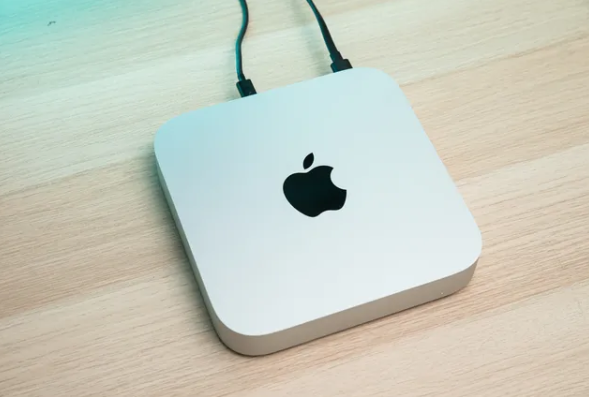Download these apps before your next trip to China!

From the outside, China may seem like a fairy tale land. From the epic Avatar Mountains of Zhangjiajie to the modern and sleek Wangjing Soho building in Beijing. It is the perfect mix of two worlds: modern and heritage.
Due to the vast variety of vistas, China is the perfect destination for travellers from all walks of life. However, because of the language barrier and lack of information online, China may not be the first destination that comes to our mind when choosing the next vacation spot.
Thankfully, advancement in technology is changing this. To help you navigate China and overcome the language barriers, this article will explore five apps that you must download before travelling to China.
1 - Virtual Private Network (VPN)

Virtual Private Network or simply, VPN, is an app that masks your Internet location. Right now, if you’re connecting to the internet from your home in Selangor, essentially, everyone can figure out your location.
For normal internet usage, there’s no reason for you to care – other than privacy concerns. But if you are travelling to China, your internet usage might be difficult because the Chinese government restricts access to most websites outside of China, especially services related to the news, Google, and Facebook.
You might be thinking restrictions to these services might not impact your life, however, be wary that Google and Facebook have all kinds of related services that we have come to depend on.
This includes WhatsApp, Instagram, Facebook, Google Maps, Google Search, Gmail, YouTube, and most services that need you to log in using Google and Facebook accounts.
So, the way around this “Great Firewall of China” is by using a VPN.
With a VPN, you can mask your internet location, even when you’re accessing these sites from within China. You can gain access to all the restricted sites and services. However, do note that VPN usage in China is generally still illegal. Use at your own risk.
There are a number of different VPN apps in the Google Play Store and Apple App Store such as ExpressVPN, NordVPN, and Astrill. From my personal experience, I would recommend ExpressVPN for its reliability and ease of usage. Not to mention their customer support is quite responsive.
It doesn’t matter which VPN apps you choose, make sure to download, subscribe, and configure your VPN before entering China. This is very important!
2 - Google Translate

Google Translate (GT) is part of Google services that is banned in China. So, you must activate your VPN before using this app.
From my personal experience, GT is a very easy-to-use, simple, and accurate translation app. I’ve tried others such as Pleco, Translator, and Translate but I always come back to GT.
Oh yeah, before that, Chinese in China are using Mandarin when communicating and it was saved as ‘Chinese (Traditional)’ in the GT app.
There are four ways you can use GT, really. First, you can just type in a word or sentence that you want to translate in GT itself. Second, you can speak directly to your phone while opening the app and GT will translate your voice clips into Mandarin.
Third, you can enable the camera, point it to any text, and hold it steady. GT will translate the text and overlay the translation on top of the original text. It’s pretty mind-blowing the first time I used this feature. They are very useful for translating menus in restaurants, reading sign boards, or doing any simple reading.
Fourth is choosing the photos from your phone gallery and letting GT to translate any text in the photo. This is the best way for longer reading or to translate other apps that are in Mandarin, by taking a screenshot of the app and translating it in GT.
3 - WeChat

The third app is Wechat. WeChat is the superapps in China. They used WeChat not only for texting but also for ride-hailing, online shopping, location sharing, gaming, reading the news, watching videos, and more.
So, WeChat is very important in China and as a traveller, there’s no way around it. You will be using WeChat to make payments in stores, texting your colleagues, or maybe communicate with your tour guides.
Sometimes, the tour guides will also send package information and photos through WeChat to you. Similar to the VPN, make sure to download and configure WeChat before entering China.
4 - Alipay

Alipay is one of the most important apps to have in order to survive in China as a foreigner. Generally, Alipay is similar to WeChat, minus the social features. But Alipay is a little bit foreigner-friendly since there is an English version available.
Alipay focuses on mobile payments and you can use this everywhere. From making payments to roadside vendors to online shopping, renting public bicycles, boarding the metro, and paying for public buses.
Do note that most places prefer mobile payments instead of cash. These places might outright refuse to accept cash, either simply because they don’t have the change or to avoid accepting counterfeit cash.
Without Alipay, navigating through China might be limited. But after you get the hang of how to make payments using Alipay, you will have wide access to services and public transport.
Since Alipay is foreigner-friendly, you can directly link your credit or debit card to further ease your payments. I encountered issues linking my credit card to Alipay during my trip to China.
I have to resort to paying cash to my colleague and he will transfer me money through Alipay. So, make sure to properly configure your Alipay before you come to China.
5 - Baidu Maps

As mentioned, all Google services are inaccessible without a VPN. Even with a VPN, Google Maps might not be reliable due to a different GPS standard that China is using than the rest of the world to plot their map coordinates.
In this case, to properly navigate your way in China, you need to have Baidu Maps. The maps and location are accurate and interestingly, ride-hailing, food delivery services and hotel bookings have been integrated directly into the app.
Unfortunately, there is no English version for Baidu Maps. Luckily, the interface is intuitive enough and quite similar to Google Maps, though with a brighter design and more icons.
Pro Tip: Plan and save your destinations in Mandarin in a note app. This way, you can simply copy and paste them into Baidu Maps for easy searching.


